SGI Octane Project
2020-02-18
Last year, I found an Indigo2 on ebay, had some fun cleaning it up and putting it in operation.
I was a little sad that the used Octane market has brought them up in price, and, the current set of community built IRIX packages are not well maintained on the MIPS3 architecture.
After some patient eBay trawling, I came across a “Samsung Octane” for $220 USD. It was listed without a hard drive and powered on, but nothing else.
I decided that was worth the price of a new project.
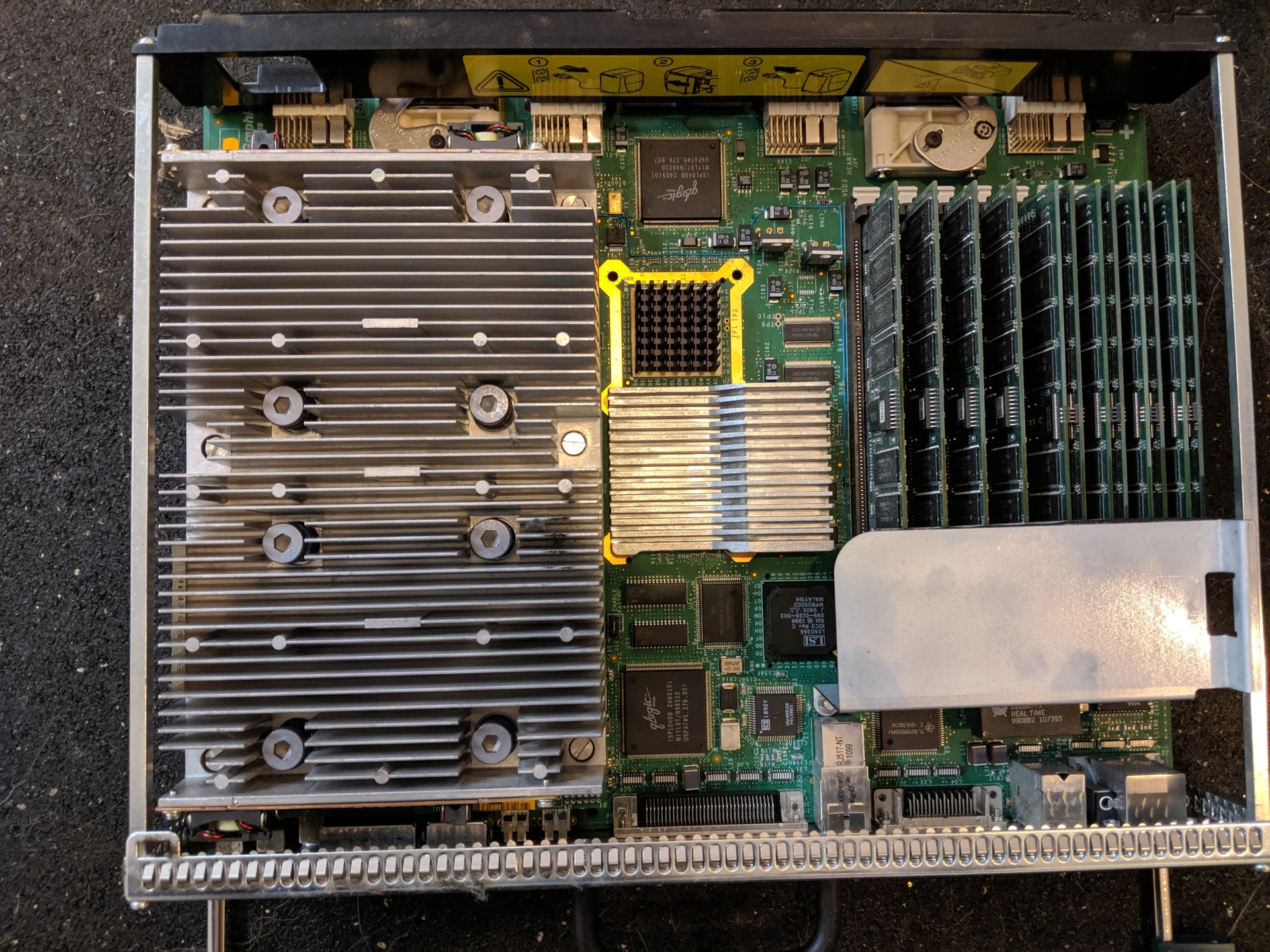
To my complete surprise, this system came with TWO processors, and all DIMM slots populated. Incredible!
The RAM was not all usable, I was able to narrow it down to a single DIMM. Octane’s did have channeled memory, so if one was bad, two were unusable. In the end, it booted up with 1.5GB RAM and thats pretty good for an IRIX desktop
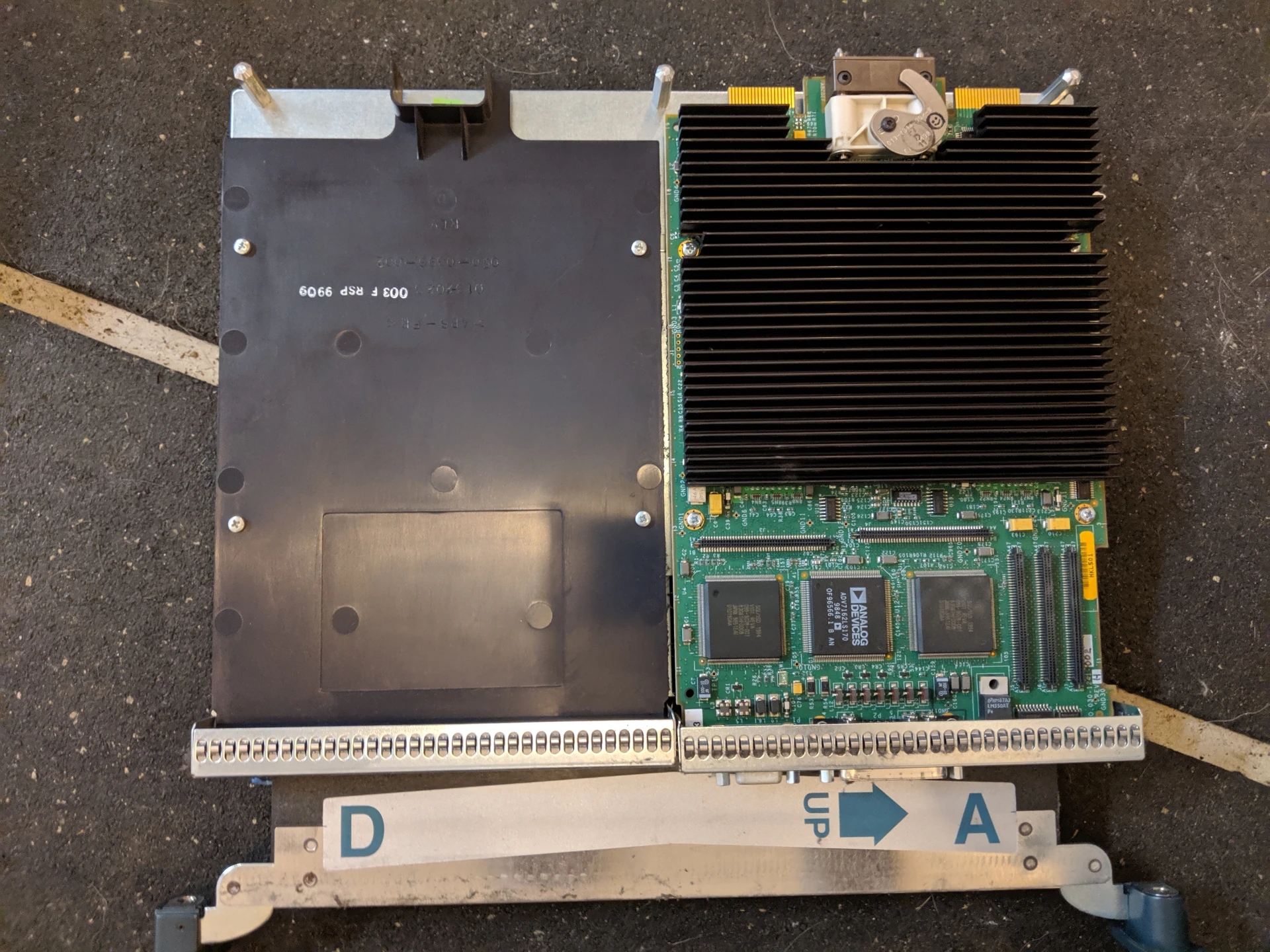
Almost as basic as a GFX can get on an Octane.
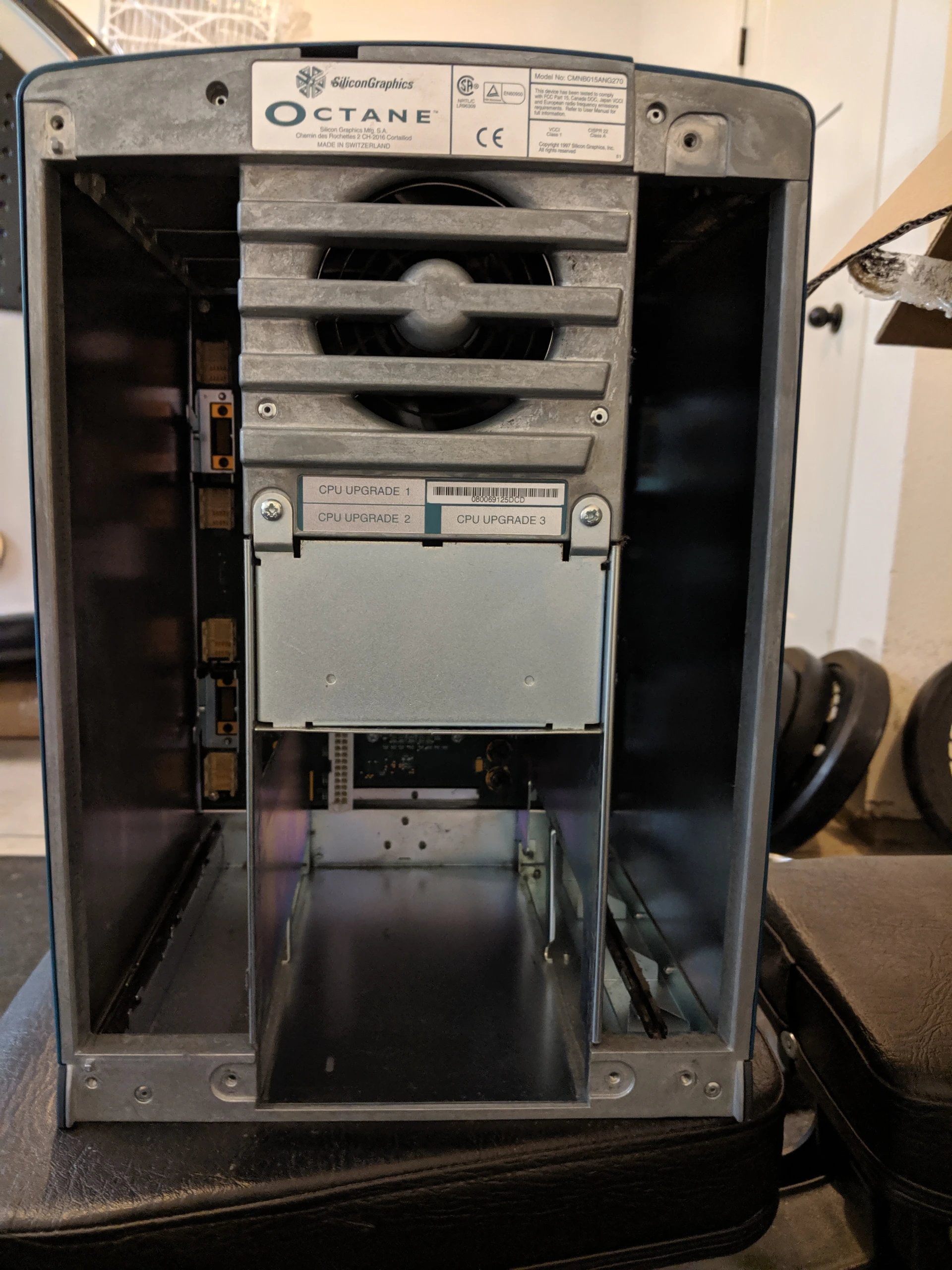
Shot of the back with boards and power supply removed
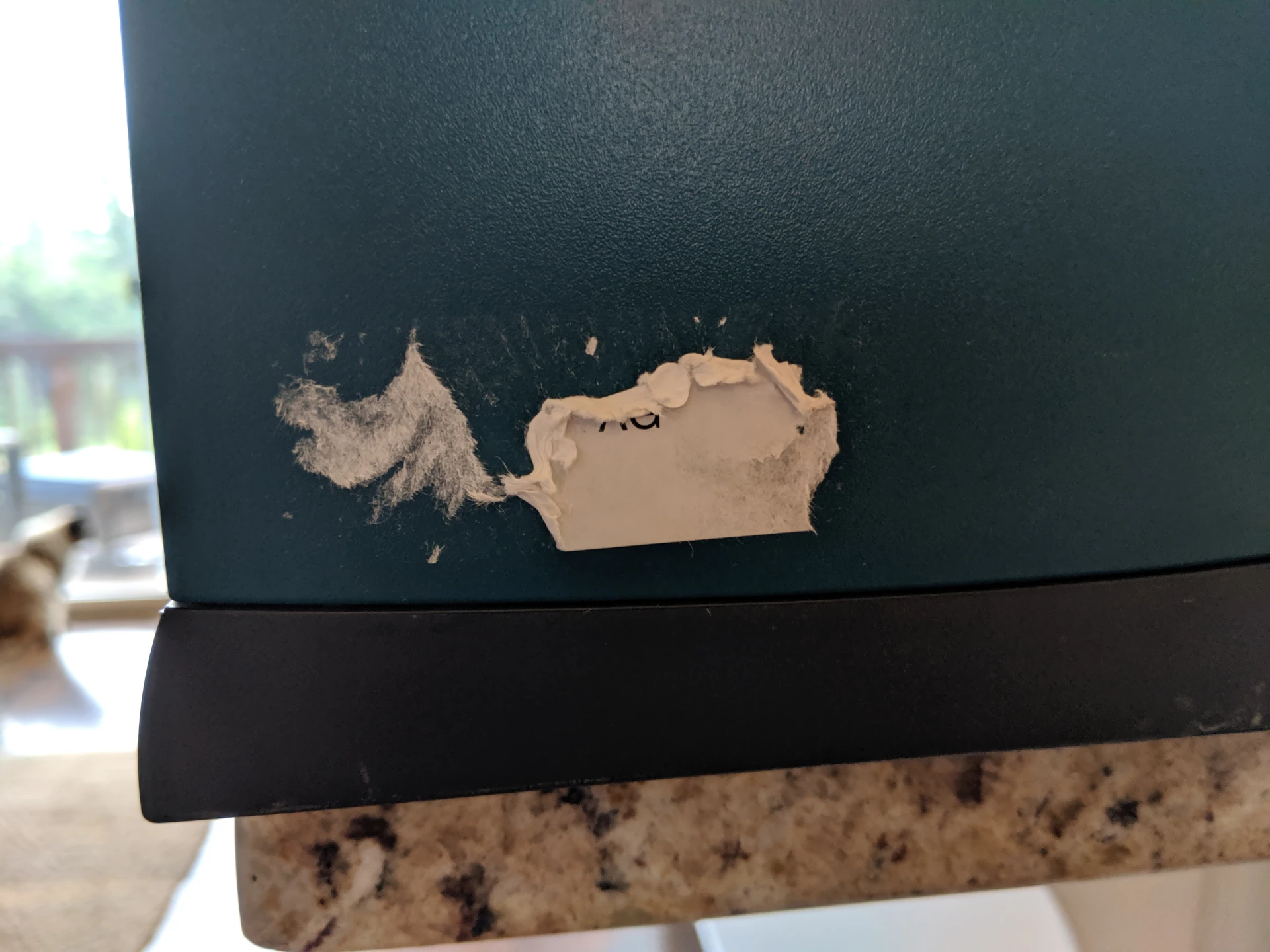
Paper asset tag. It came off with some fingernail scrapping and windex
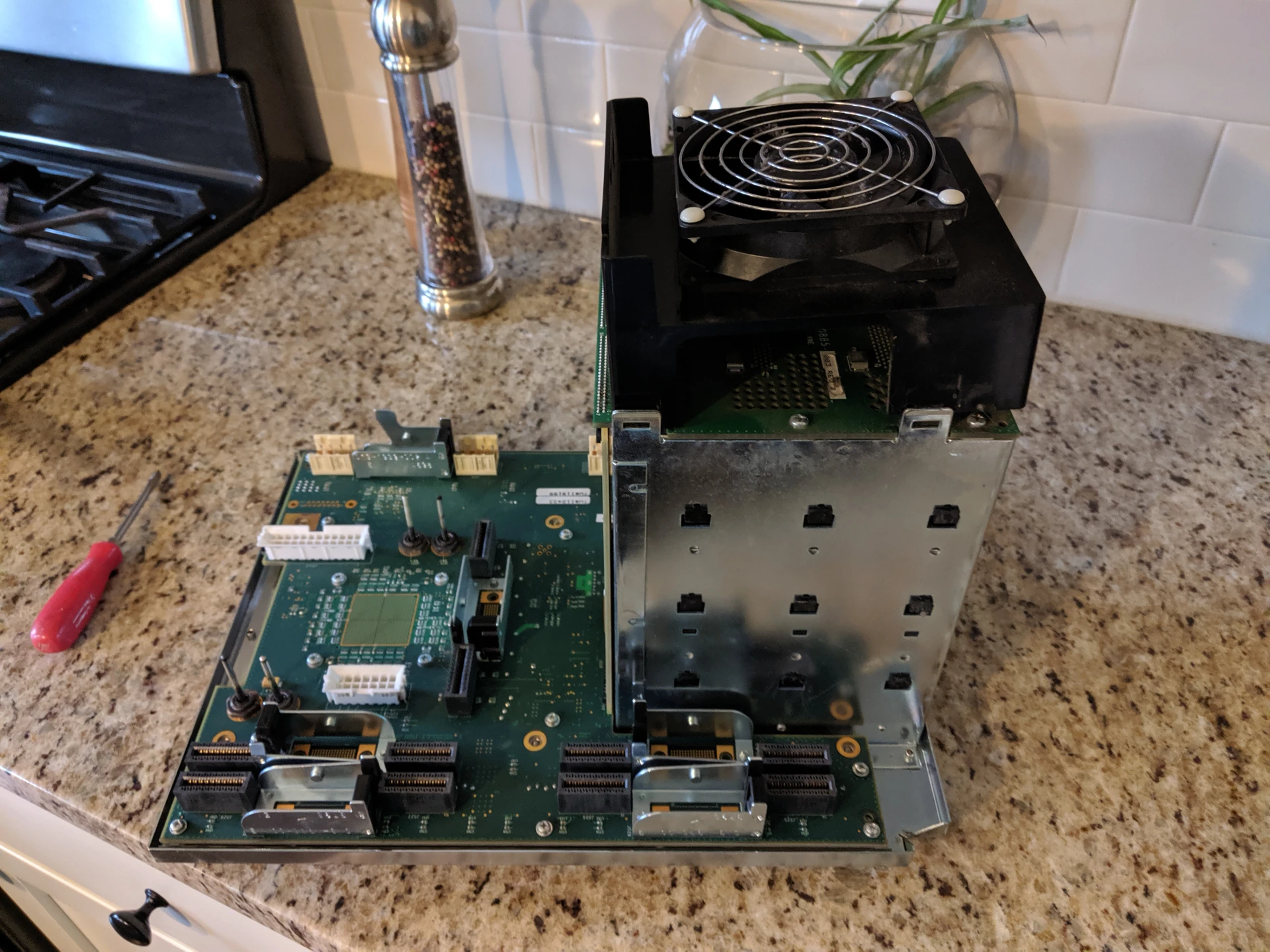
This is the heart of an Octane, the XBOW or crossbar switch
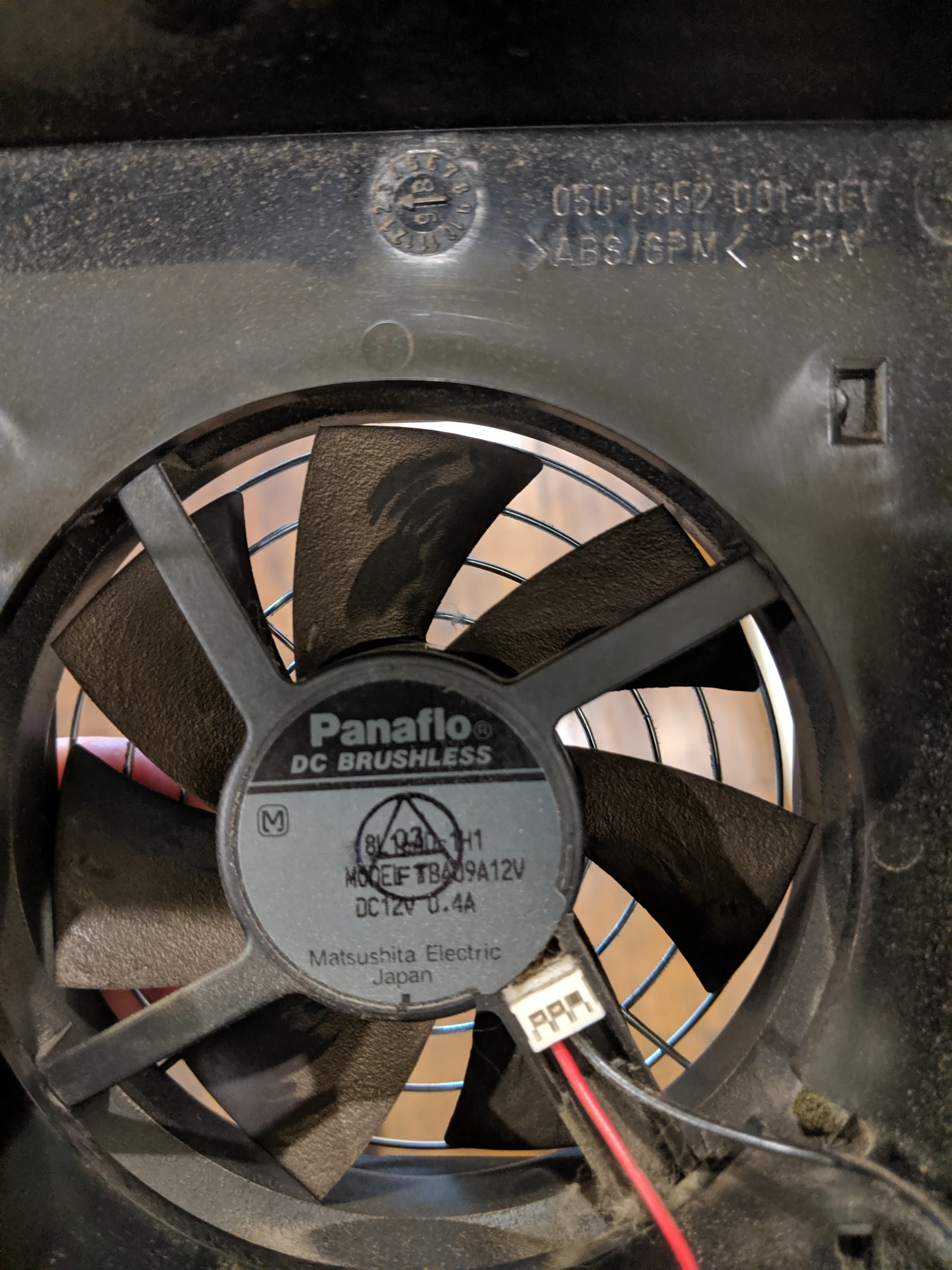
Hard drive fan. This was very dirty
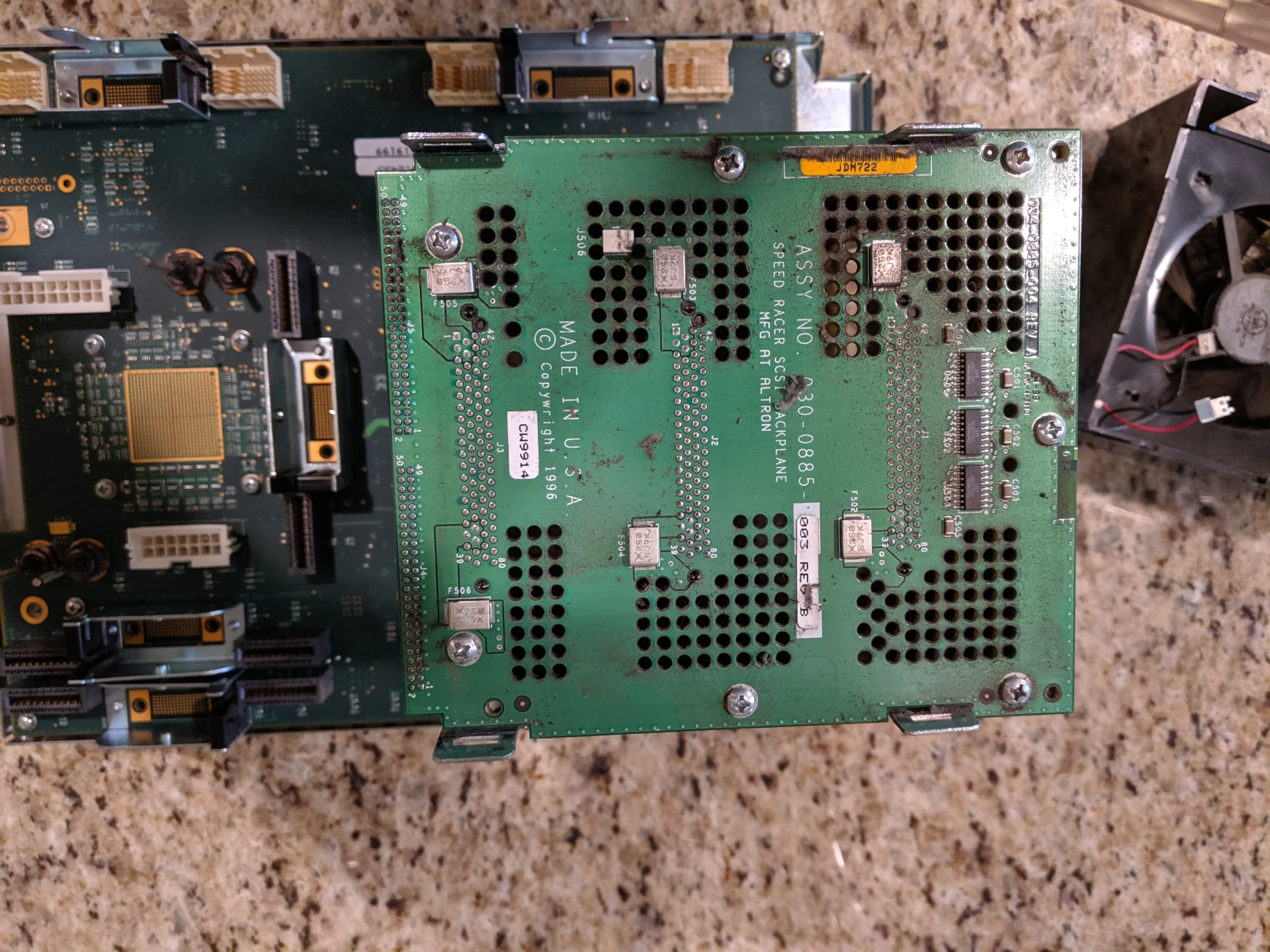
Backside of the hard drive cage. SCA80 connectors. Very dirty
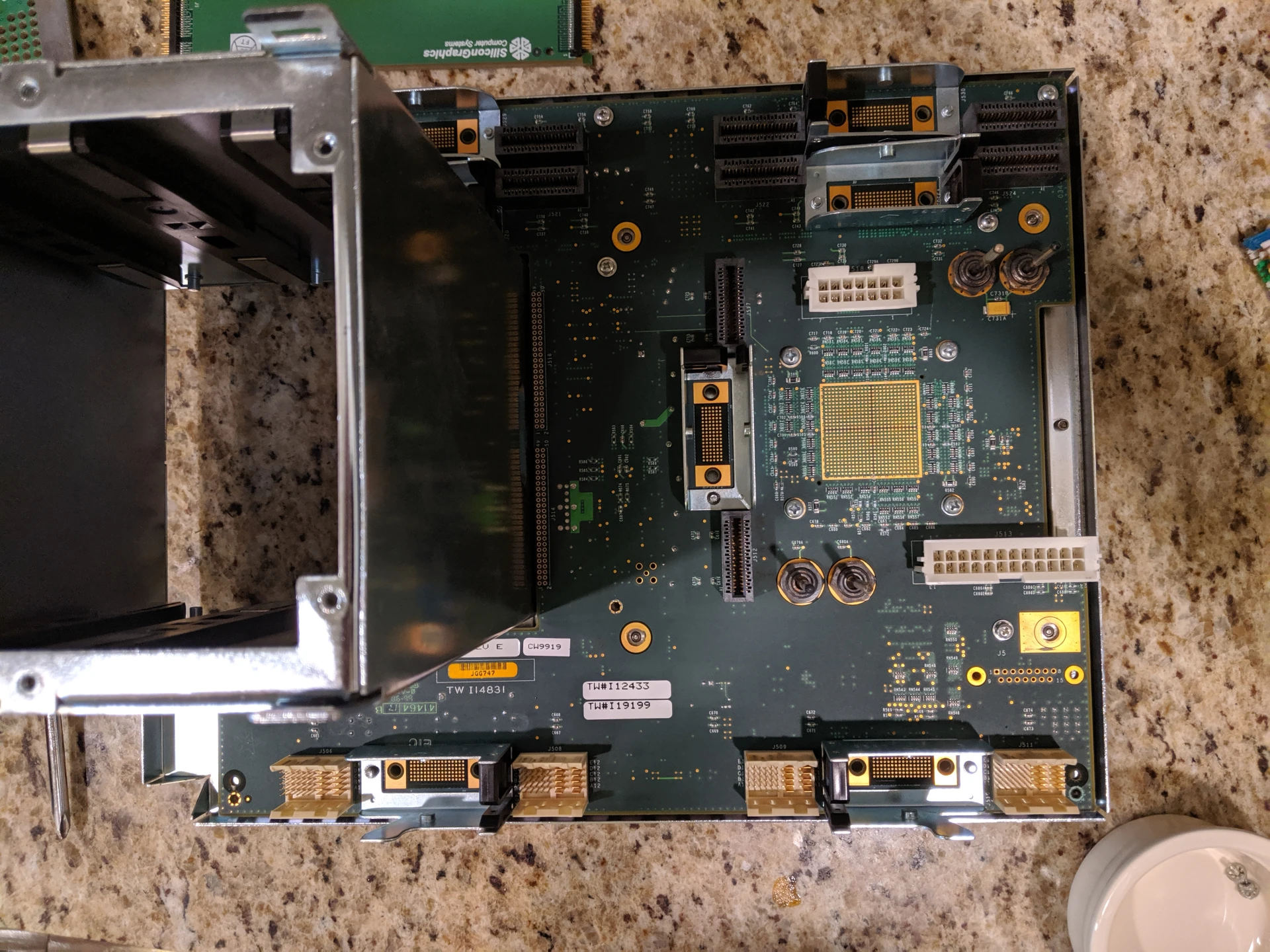
The backside of the switch. You can see the very delicate compression connectors. OH MY GOD NEVER TOUCH THESE OR EVEN LOOK AT THEM SIDEWAYS
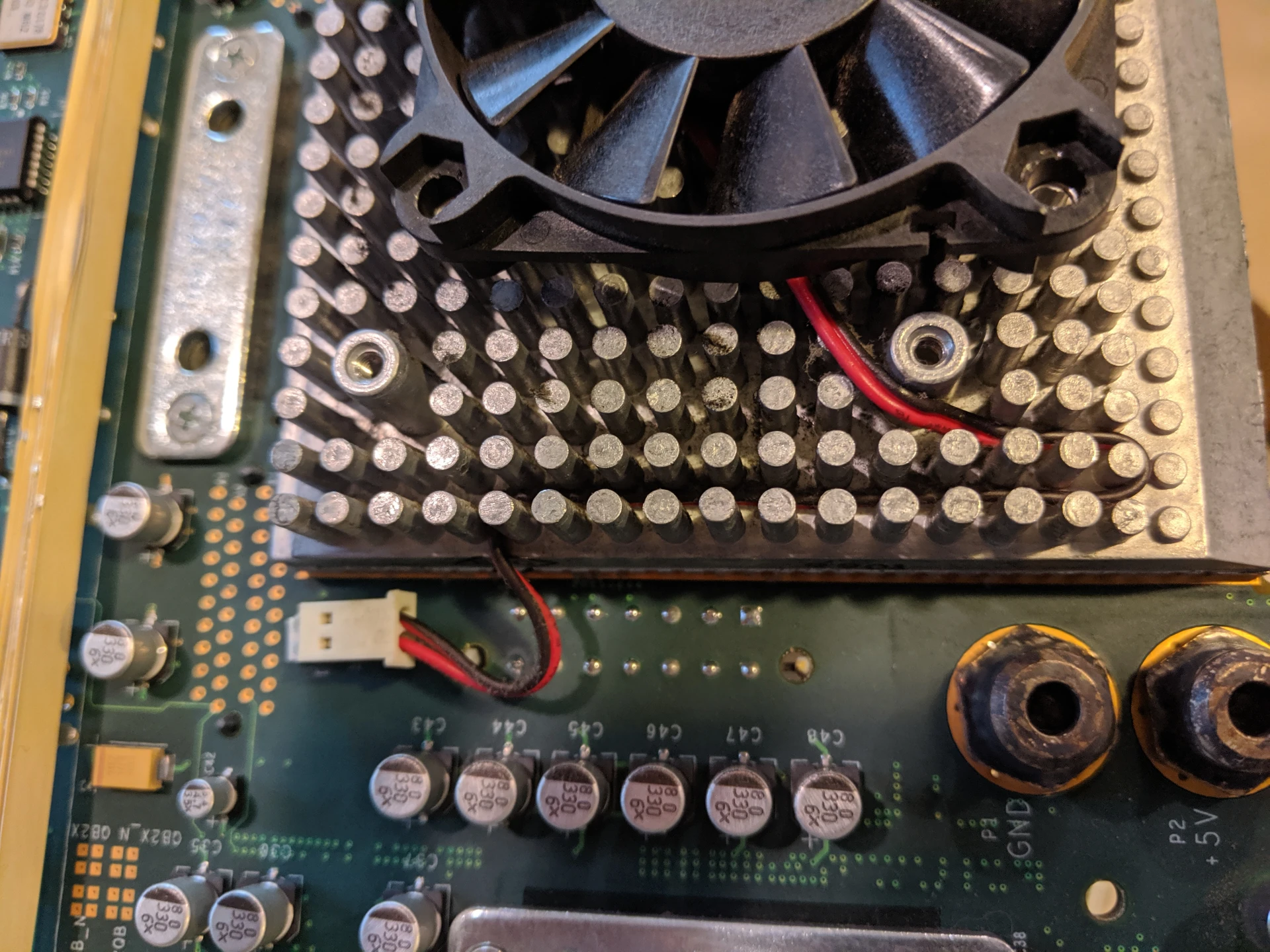
Heatsink and fan to cool the Heart

I have gotten in the habbit of inspecting the RTC and battery, as well as ordering a spare to keep in storage. This is a DS1982 battery.
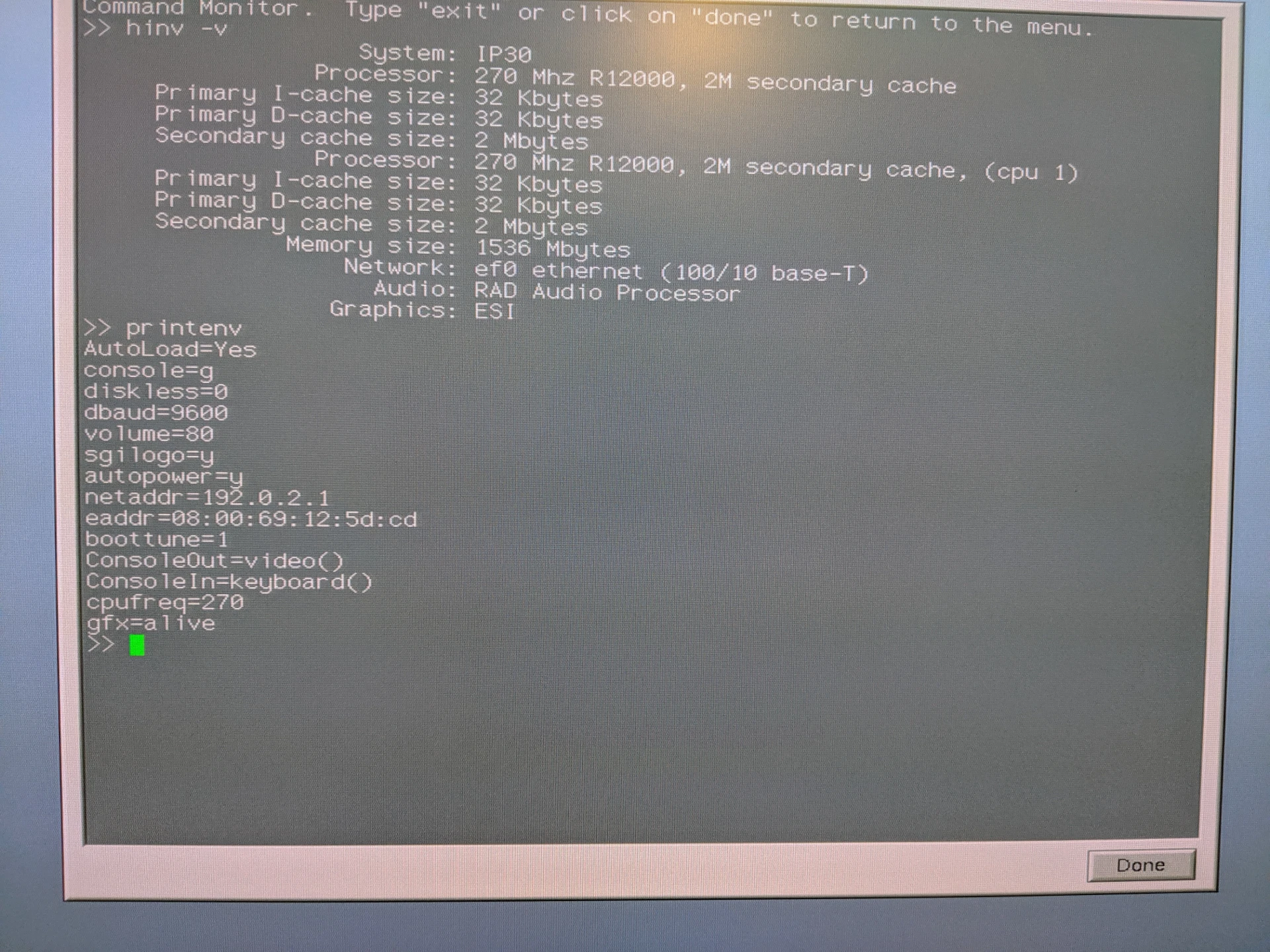
Booted up after a good cleaning, hinv output
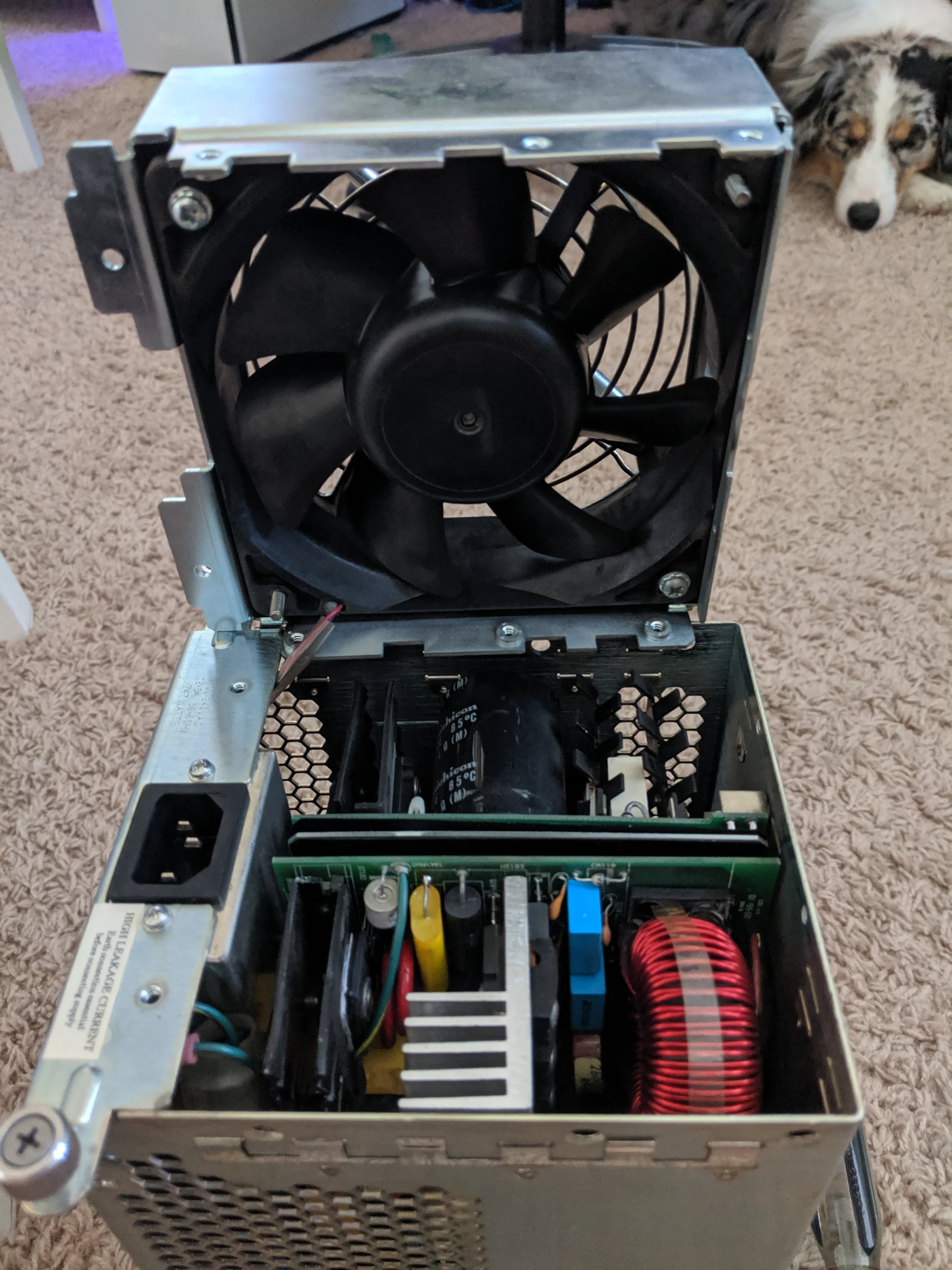
Time to replace the big power supply fan
The Noctua fan I got is a NF-12 iPPC2000, its a 120x120x25mm. it runs at 2000RPM, has 121.8 m3/h (or 71.7 CFM) and an accoustic noise level of 29.7dB(A)
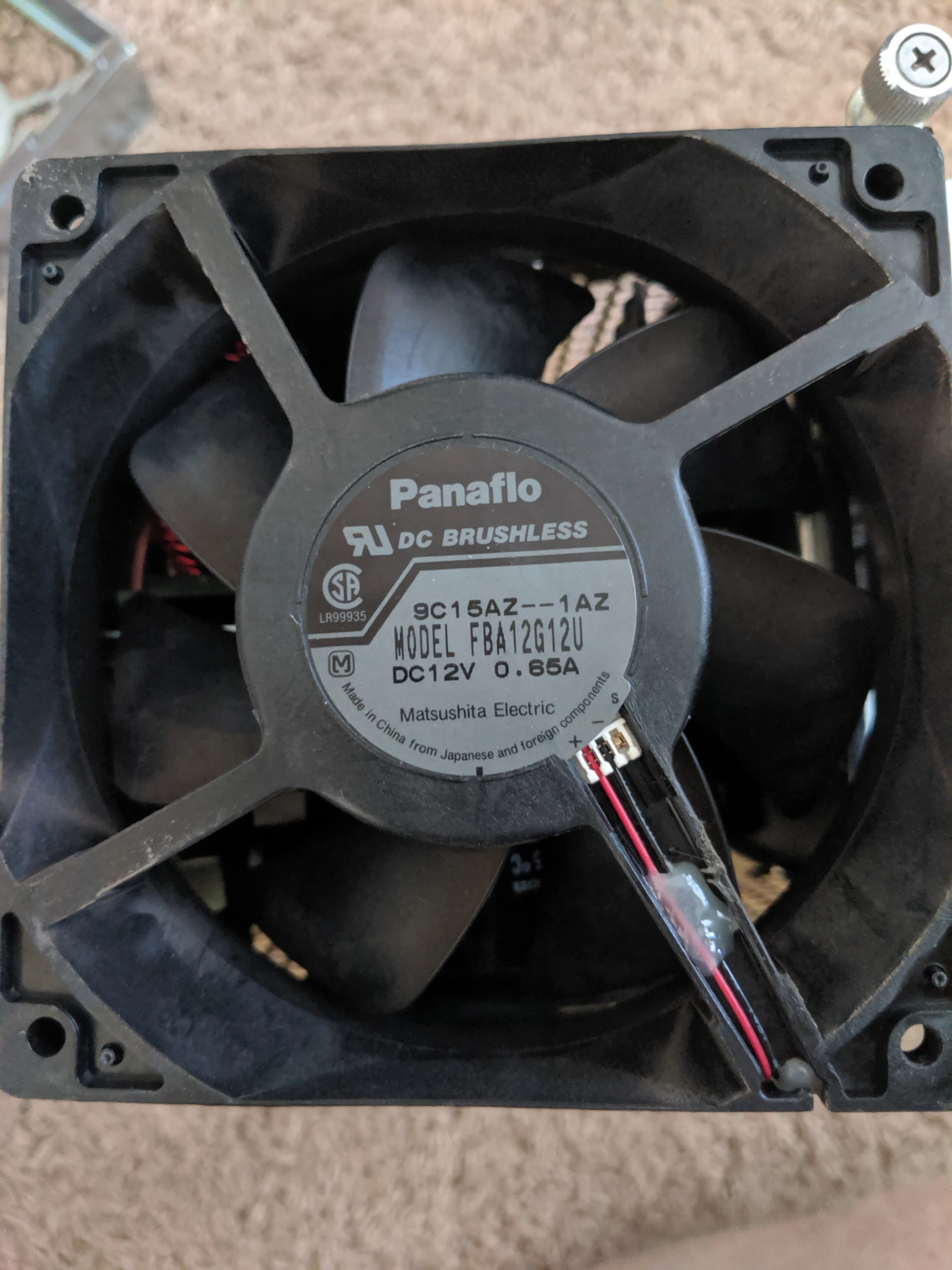
Here is the Panaflow, with a 45.5 dB(A)
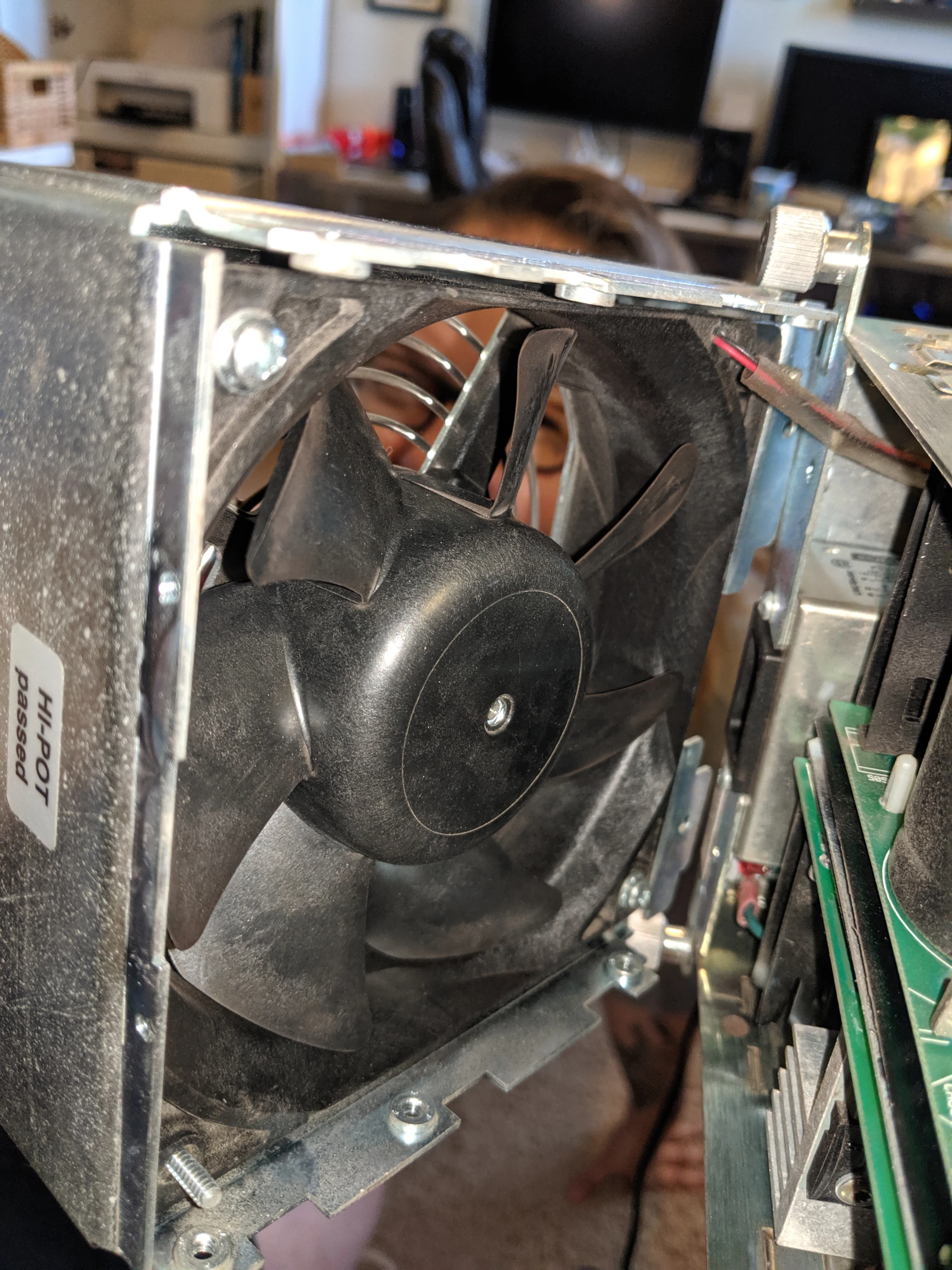
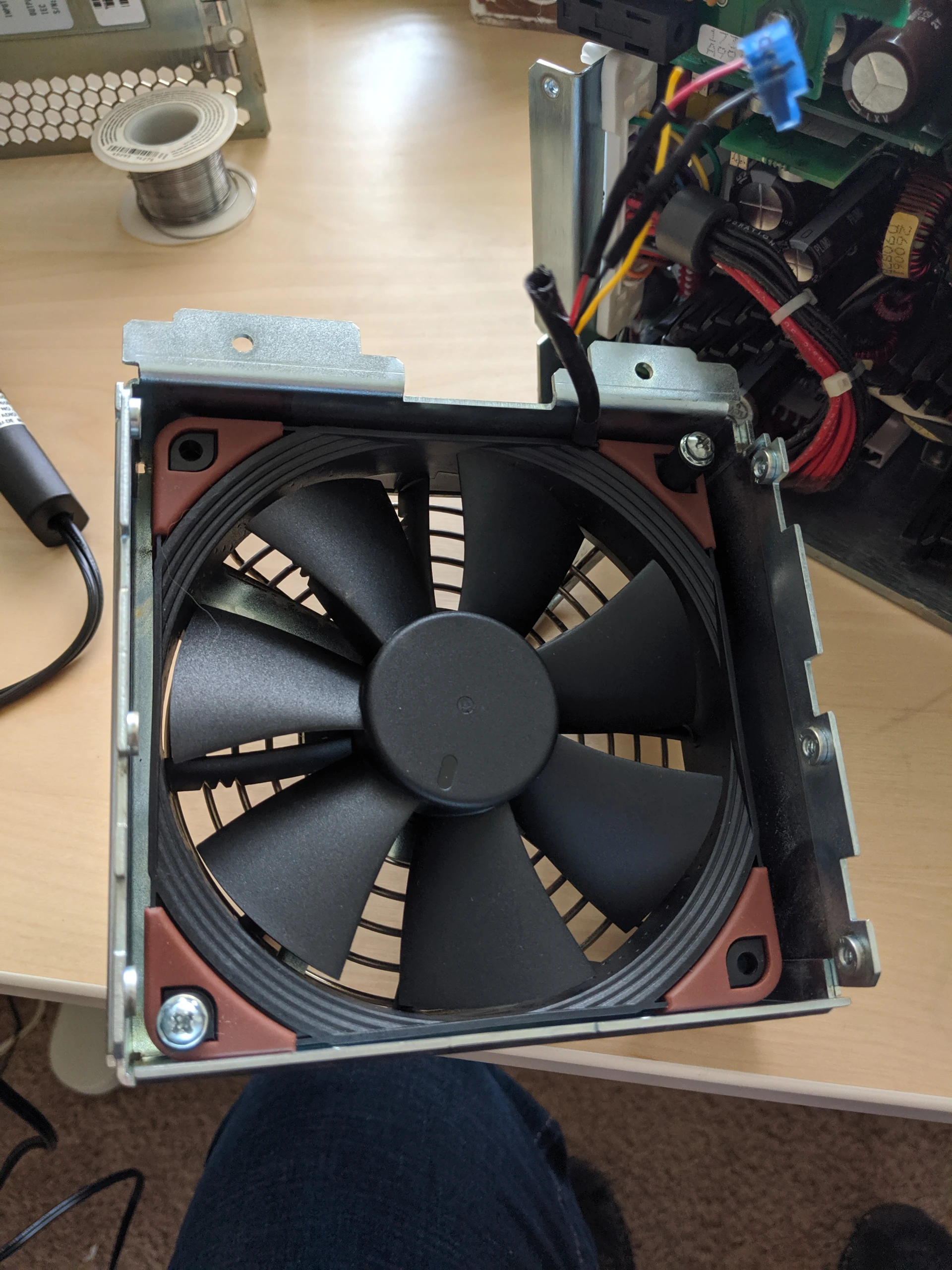
Installed Noctua
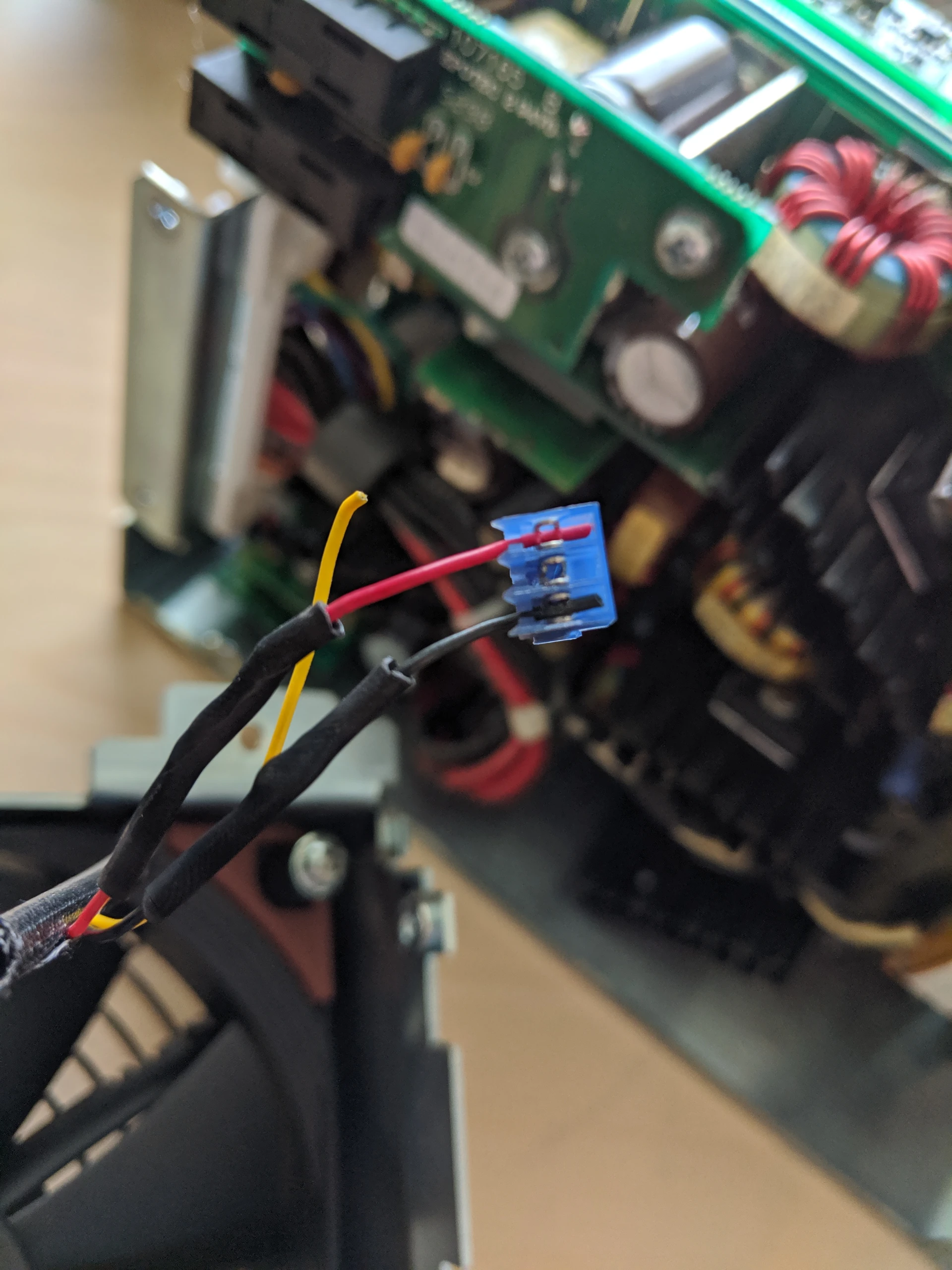
Had to reuse the connector
SCSI2SD is still barely getting up to SCSI2 speeds, so I don’t expect one to come out and replace these fast but loud scsi drives anytime soon.
Honestly, after converting everthing to SSD’s in my home office, how did we stand to have these beasts in our offices?
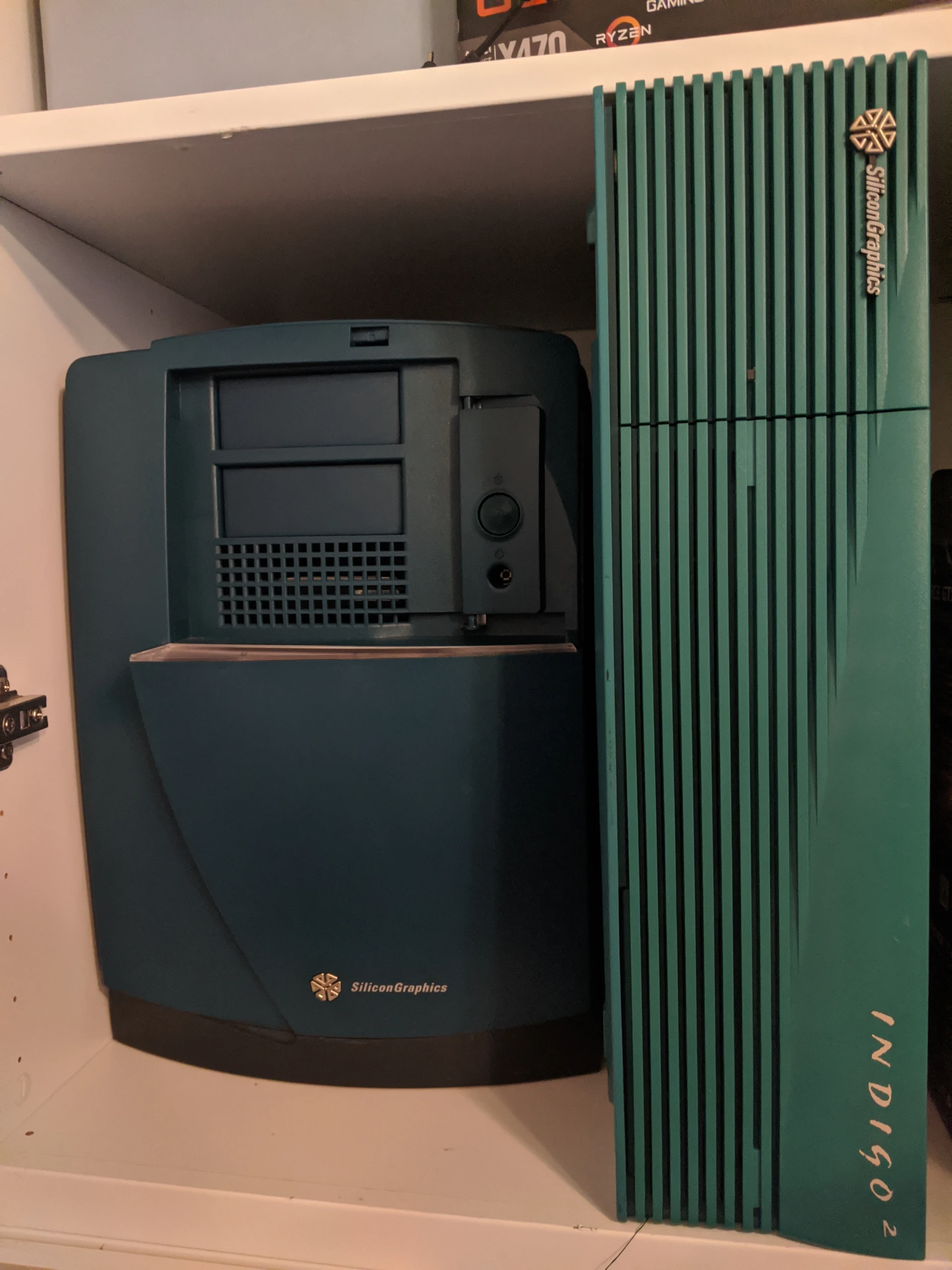
And here is where it is currently resting
Since this system did not come with any drives, I had to find one. My first attempt was to get a 72GB u320 sca80 drive on ebay or some reseller. That didn’t turn out so well. First they shipped a SAS drive, then they were unfortunate to exist in Florida and got hit with Hurricane Dorian.
After about a month of back and forth, I was able to get a free 72GB SCA80 drive for a co-worker (who also has a collection of Sun and SGI hardware).
The second part to this was a drive sled. This isn’t a Dell, you can’t easily find these on eBay. The community has solved this! 3D printers are amazing, and I have another co-worker that was nice enough to print this out:
I have not been able to work any further on this project. Two things happened:
- We re-arranged to computer room, and the space I was cramming thos system is was not acceptable
- Did I mention it is LOUD?
Part of me wants to setup a little corner in my garage dedicated to this type of equipment. I could run ethernet out there very easily, and the loud noise wouldn’t be an issue. Tunneling X11 is pretty easy. What I would really like to do is build and mirror community packages. I have a related project to get sgi-irix.com up and running so folks can rsync media and packages.